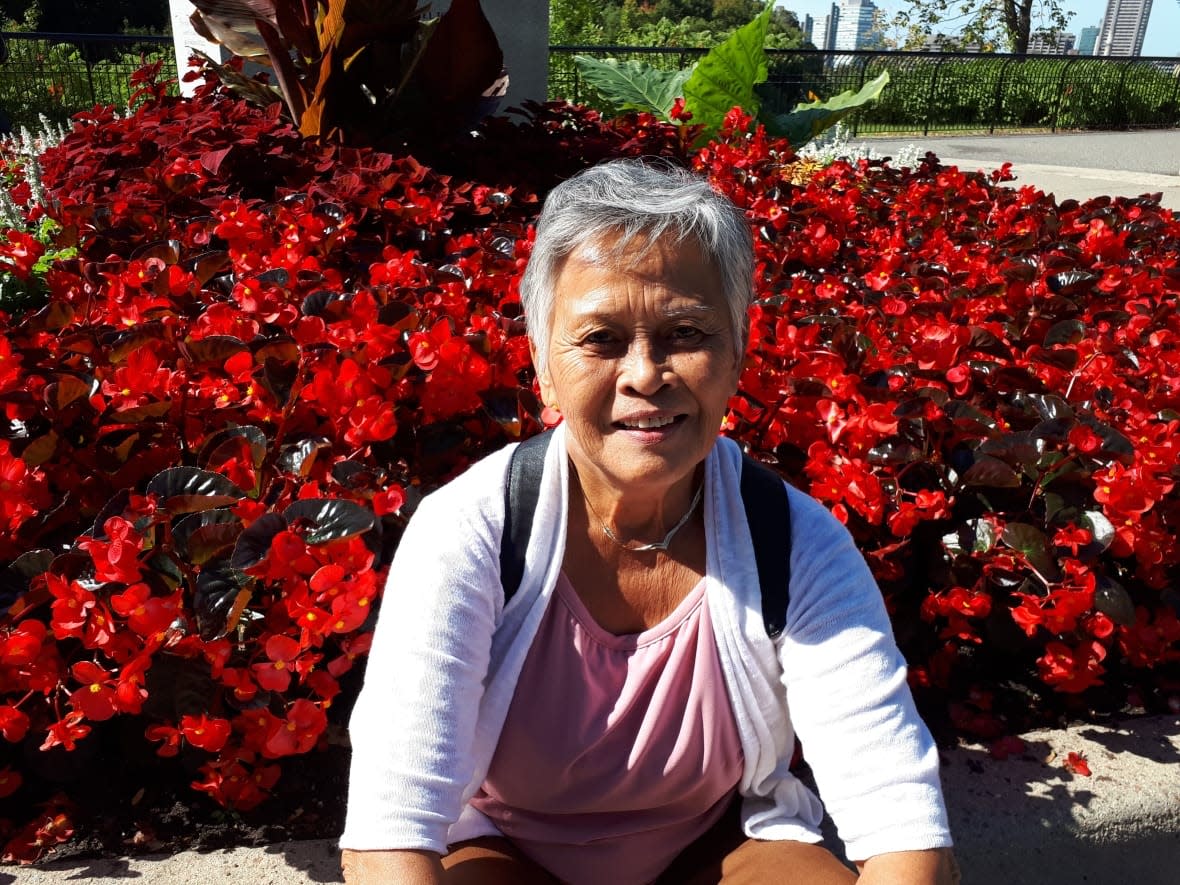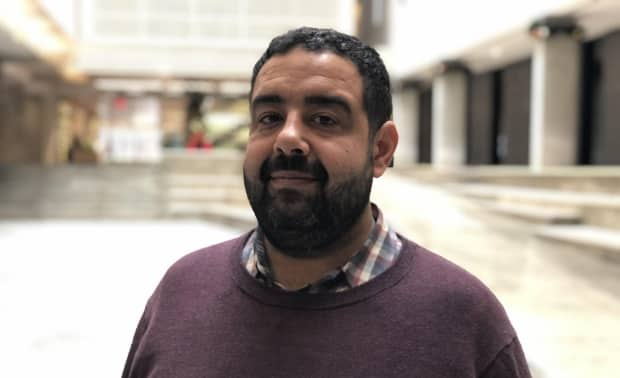Immigrants in Quebec could struggle to have rights respected under new language law

Groups helping immigrants, migrant workers and refugees in Montreal say their clientele will struggle to have their basic rights respected under Quebec's revamped language law.
Bill 96, the province's overhaul of the Charter of the French language, was adopted into law at the National Assembly Tuesday. The law's wide scope limits the use of English in the courts and public services, and imposes stricter language requirements on small businesses, municipalities and CEGEP students.
One of the law's clauses calls on newcomers to learn French within six months of arrival, after which they can no longer access most public services in another language.
Community workers say that could make it difficult for their clientele to access justice and even complete daily errands, pushing some further into isolation and vulnerable situations.
They believe Quebec is creating a two-tiered immigration system, where people fleeing strife who speak only rudimentary English could be discouraged from coming to the province despite growing labour needs. Meanwhile, the province is relying on an increasing number of temporary foreign workers in low-wage jobs to fill significant labour shortage gaps.
"We really feel discriminated against," said Evelyn Calugay, who runs PINAY, a Filipino women's rights group.
Filipinos coming to Quebec are often compelled to fill precarious jobs, such as domestic work, leaving them little time to learn French, Calugay explained. They already come from a country with eight major dialects, she noted.
Calugay, who is 76 and came to Quebec in 1975 when the province was desperate for nurses, said it took her a year of full-time French classes to get to a point where she could understand and be understood in French.
"We learned English in school because it was taking from the American system, so the language was imposed on us, and before that our ancestors were forced to speak Spanish," said Calugay. The Philippines was a colony first of Spain, then the United States until it gained independence after the Second World War.
Calugay said she appreciates the importance of preserving the French language, and following the laws and customs of Quebec and Canada, but that the revamped language charter now feels coercive, rather than a way to promote French.
"We don't even encourage temporary workers to come to Quebec for now," she said.
Legault shifting focus to immigration
Premier François Legault told reporters Tuesday after the law passed that he wanted to turn his focus to making sure a larger number of immigrants accepted into the province already speak French, noting he would be making it a campaign issue in the upcoming election.
He said his government has increased the proportion of its selection of immigrants who speak French from 55 per cent to 84 per cent, but that the proportion of French-speaking immigrants accepted into the province by the federal government was only about 50 per cent.
While Quebec manages economic immigration to the province — a power other provinces and territories in Canada do not have — the federal government is responsible for the admission of refugees.
Calugay points out that if Quebec's powers are extended to include refugees, the province could effectively limit admissions from certain countries based on their French proficiency, while bringing in more temporary foreign workers, who mostly hail from Mexico, Guatemala and Honduras.
"Because that's cheap — what does a capitalist want? Cheap labour, of course," she said.

Mostafa Henaway of the Migrant Workers' Centre agrees with Calugay that the government appears to be prioritizing temporary migrant work in order to appease its voter base.
"There's this idea that they want a temporary and sort of disposable, flexible workforce," Henaway said in a phone interview.
"So, the CAQ can say it reduced permanent migration. Then at the same time, they can say they increased the number of temporary migrants and protected the French language."
He said the six-month clause means vulnerable workers and immigrants in all kinds of situations could have trouble understanding and making themselves understood when it comes to denouncing abuse.
Prime Minister Justin Trudeau has so far rejected Legault's calls for Quebec to have complete control on immigration into the province but has pointed to Bill C-13 tabled by the federal Liberals, which in part aims to increase immigration from French-speaking countries.
In a statement to CBC News, Jean Boulet, the provincial minister responsible for immigration, labour and francization, said prioritizing French-speaking immigrants is important for Quebec, "given the French character of Quebec and the issues in sustaining the official language of Quebec."
"Temporary workers are essentially the responsibility of the federal government and there is no threshold limiting the arrival of this category of immigration," Boulet said.
In 2021, nearly 24,000 temporary foreign workers were employed in Quebec, the highest number yet in the province and up from about 17,000 the year before. Quebec announced last year it had signed a deal with Ottawa for companies in the province to hire up to 20 per cent more than that.
When children are the translators
For Rose Ndjel, the director of Afrique au Féminin in Montreal's Parc-Extension neighbourhood, the challenge posed by the extended language restrictions will be on people who have already lived there for years and may not have easy access to French courses because of time and cost.
Ndjel helps run a local bank of interpreters who speak many of the more than 130 languages present in Park Ex, such as Spanish, Punjabi, Hindi, Lingala, Urdu and Tamil.
Ahead of the law's adoption, she said a local school board employee contacted her asking for interpreters to translate teacher meetings to parents.

"The people who speak French in Parc-Extension are people who moved here from other neighbourhoods," Ndjel said, referring to the growing gentrification in the area.
"Otherwise, it's the children who go to the elementary and high schools in French who speak the language."
She said children sometimes miss school to help translate services, such as at doctor's offices, for their parents or grandparents.
"That will happen even more with this law," Ndjel said in French. "Parents won't be able to do anything without their kids. Unfortunately, that's where we're at. Children's health is at stake."


